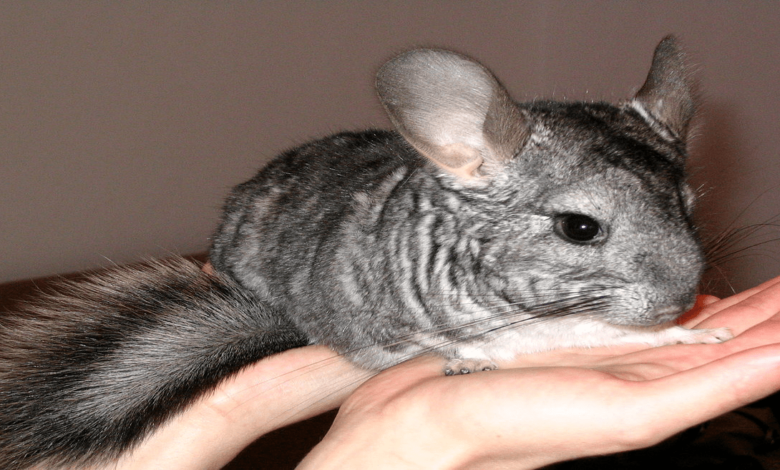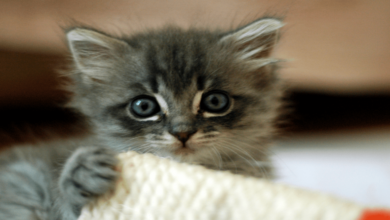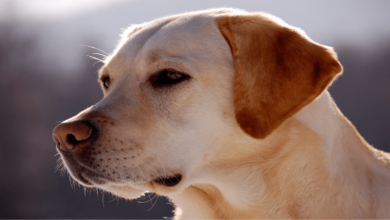Chinchilla: 7 essential steps to ensure their well-being
Learn how to care for this super cute pet

When it comes to choosing a pet, it is common to think first of what we want from it, such as companionship, fun, and also daily affection. But you know that responsible animal husbandry also means thinking about the needs of each individual. Grooming is essential for chinchillas.
They are very quiet, super-friendly, low-maintenance rodents that are great for apartment dwellers. But do you know what is necessary to live a healthy and happy life? We’ll tell you below!
But before you go to the article join our telegram channel and stay up to date with everything about the world of pets, like care, curiosities and more. Click here!
Invest in a very spacious cage
The bigger the cage, the better the quality of life of your pet. So when shopping, always choose the largest chinchilla cage that your budget allows.
But be careful! You need to make sure you have a well-suited place to set it up. For chinchillas, this can mean a very calm and quiet place with optimal temperatures because excessive heat is not healthy.
Chinchilla: Be careful with your pet’s natural instincts
Each species has its own habits and the cool thing is that the body is almost always adapted to them. For example, despite their very plump and seemingly heavy bodies, chinchillas are excellent jumpers, and their tails are ideally shaped and moved to give this impulse.
Therefore, if you want to look after the well-being of a chinchilla, it is important to respect and also encourage this natural instinct with the help of very high cages with several shelves.
And by doing so, you provide benefits to his physical and mental health, thus reducing the risk of stress for your pet.
Provide a well-balanced diet
For all pets, it’s best to ensure proper nutrition is the first step to ensuring that quality of life. After all, it helps ensure the proper functioning of their body, prevents the onset of diseases, and also gives the chinchilla energy for its activities.
In this sense, the best feeding option for these rodents is the so-called extruded food, or as it is known rations prepared with nutrients and vitamins to meet the needs of these rodents.
Keep a close eye on the wear and tear of the teeth
As with all rodents, this pet’s teeth grow continuously throughout its life, which is great, because the chinchilla bites and gnaws objects to wear down its teeth.
And on the other hand, if they have nothing to gnaw on, the growth of the teeth can lead to very serious health problems, such as misaligned and injured teeth.
So avoid this, invest in special toys for chinchillas and lots of alfalfa! Besides wearing down their teeth, it also stimulates the rodents’ intestinal function.
Keep the hygiene of the cage and chinchilla up to date, but no water!
Chinchillas are very clean pets, so they can get stressed in environments that are too dirty. Therefore, try to clean their cage daily and remove any debris. Bathing is quite important for this rodent, but don’t put them in water!
The skin of these desert animals does not absorb moisture very well and their fur does not dry out. Therefore, the ideal is to give them a dry bath with a calcium carbonate 2 to 3 times a week just to remove dirt and grease.
The technique is quite simple: pour the dry bath powder into a container and then place it in the cage. Wait for the chinchilla to roll over and that’s it! Just remove the tank and wait for the next bath.
Care for your chinchilla: Get regular checkups at the vet
The chinchilla has one of the longest lives of any domestic rodent, reaching an impressive 20 years!
However, in order for them to live a long life with a great quality of life, you need to ensure that their health is good and also make changes in their care if necessary. Therefore, it is best to take them to the vet regularly.










